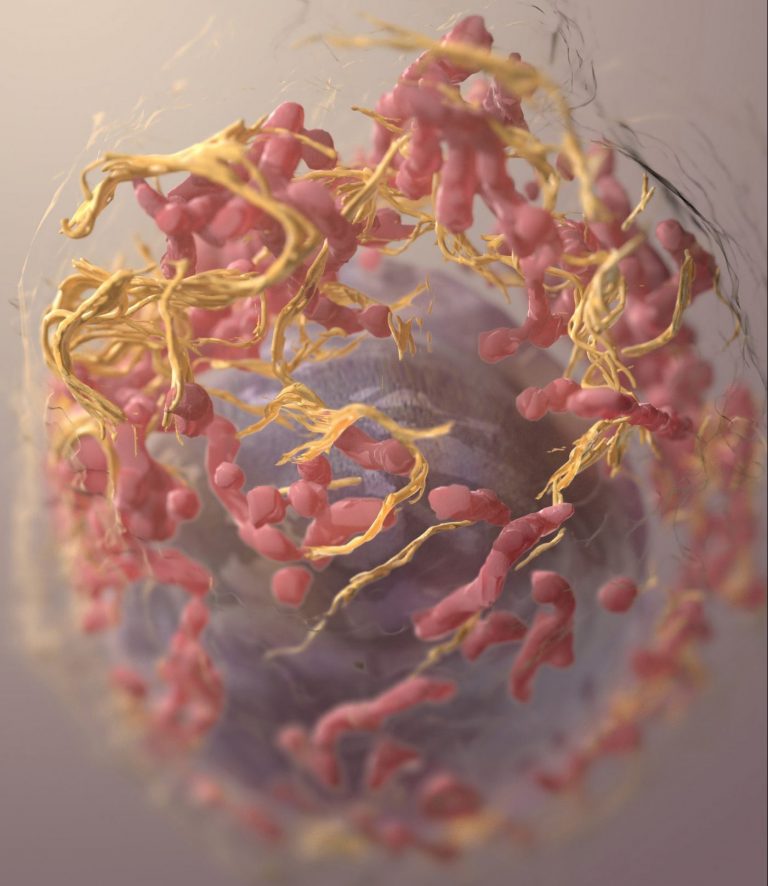
To protect our bodies from cancers such as melanoma, the immune system uses a monitoring system called immune surveillance that detects and destroys premalignant or malignant cells in the body. However, the immune system can have an alter ego at times, favoring tumor development instead of destroying the premalignant or malignant cells. The dual behavior can be difficult to detect prognosis indicators and targets for drug development. To combat the dual behavior, researchers from the Spanish National Cancer Research Center (CNIO) decided to take a dual therapeutic approach.
Their findings, “Midkine rewires the melanoma microenvironment toward a tolerogenic and immune-resistant state,” published in Nature Medicine reveal how melanoma is able to make the immune system an ally in cancer development, and may lead to the development of optimized immunotherapy.
The researchers currently led by Marisol Soengas, PhD, head of the melanoma group at CNIO, previously discovered in 2017 that the midkine protein plays a critical role in melanoma metastasis. Midkine activation determines the tumor’s potential to metastasize. In the current study, the researchers used an animal model to analyze the expression of midkine and discovered that higher expression of the protein is related to higher metastasis potential, while blocking midkine inhibits the spread of cancerous cells.
“Our results help us understand why metastatic melanoma is associated with a poor prognosis and, especially, why some patients do not respond to immunotherapy,” stated Soengas. “We examined databases from six separate studies and found a group of genes associated with midkine expression in patients who do not respond or develop resistance to immunotherapy.”
“When we blocked midkine, two important types of immune cells (macrophages and T lymphocytes) began working normally again and attacked the tumor,” said Soengas. “This means that, in treating patients with melanoma, we should take a dual therapeutic approach.”
“Midkine should be inhibited as well, so that the defense system can regain its normal functions.”
Taking on the dual behavior of the immune system with a dual strategy yielded double the results. The researchers also used their approach in other tumors.
“We also studied other tumors, like glioma, lung cancer, and kidney cancer,” David Olmeda, staff scientist at CNIO and co-author of the study, said. “We believe our findings will have a considerable impact in a number of diseases,” he added.
The dual approach requires further development, as it can aid in immunotherapies that become resistant or have not been effective in certain cancers.
The differences in tumor response to immunotherapy led to the classification of tumors as hot or cold. Some “hot tumors do not fully respond to treatment, a fact we could not understand before,” said Daniela Cerezo, PhD, postdoctoral fellow and first author of the study. “Our results contribute to explain the reasons why this is so, and they will help increase the effectiveness of immunotherapy for these tumors.”













